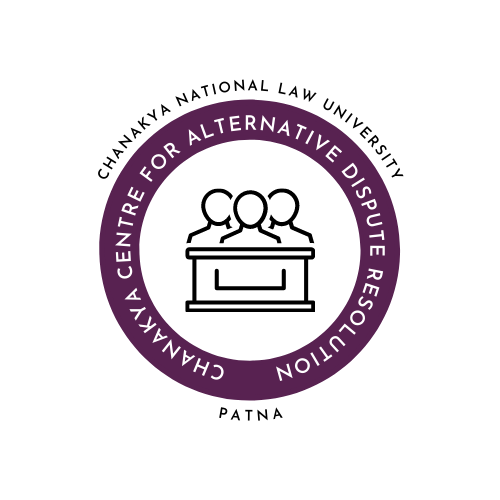The following blog has been authored by Kiran Ray, first-year student at Chanakya National Law University, and the second winner in the CNLU Fresher’s Blog Writing Competition 2025-26.
Introduction
Today, more people are choosing arbitration over going to courts because it is less time consuming and more economical. But what happens if the process isn’t fair from the start?
“Every action of a public authority or a person acting in the public interest or any act that gives rise to a public element must be based on principles of fairness and non-arbitrariness”. This is what the Supreme court stated in the case of (CORE)Central Organisation For Railway vs M/S Eci Spic Smo Mcml[1], 2024. When the government signs a contract with a private party shouldn’t both parties have an equal say in choosing who judges their dispute? This blog aims to analyse how this landmark decision transforms arbitral neutrality, making sure that India’s arbitration system grows the right way with fairness at its heart for all parties.
The Problem That Needed Solving
For years government contracts included clauses granting unilateral power to appoint arbitrators. These provisions created an inherent imbalance leaving private contractors with only option: either accept unfair terms or lose lucrative projects. Due to which a systematic bias was created where government essentially became judge in its own dispute. Earlier courts were reluctant to challenge these provisions and focused mainly on contract interpretation, preferring to respect “party autonomy” even when one party has no real choice.
The Constitution of India under Article 14 guarantees equality before law, meaning it applies to everyone including government and the government cannot give itself undue advantage even in commercial deals. Section 18 of The Arbitration and Concilation Act 1996 mandates equal treatment of parties, while Section 12 demands arbitrator independence thereby supporting constitutional equality. As we look holistically, the International arbitration standards also emphasize neutral appointment procedures, demonstrating that fairness is globally aspired.
This became crucial as India aims to become global arbitration hub, with increasing foreign investment and public-private partnerships, international businesses needed assurance of fair treatment. Moreover, there is growing consciousness that the government cannot shed its constitutional obligations in the veil of entering commercial contracts.
The Supreme Court’s Constitutional Analysis
The legal landscape was evolving. In Perkins Eastman Architects DPC & Another vs HSCC India Ltd (2019)[2], the Court had struck down sole arbitrator appointments by interested parties. But then came the confusing (Central Organisation For Railways) [3]CORE decision in 2019, where the same Court allowed railways to appoint three retired railway officers from a panel of four. The Court mistakenly believed this was fair because the contractor could choose two from four options
Subsequently, in UoI v Tantia (2021)[4], a three-judge bench realized the 2019 CORE(Central Organisation For Railways) decision was problematic. They clearly stated that interested parties cannot make valid arbitrator appointments and referred the matter to a five-judge Constitution Bench for final resolution.
The 2024 Constitution Bench finally got it right. Faced with three crucial questions about government arbitration powers, the Court applied Article 14 directly to commercial contracts. The Court held that when government does business, it cannot escape constitutional duties of equal treatment. The Court reinforced the nemo judex principle (no one should be a judge in their own cause), holding that unilateral appointment processes give one party dominant influence and create perceived bias in arbitration. The ruling applies prospectively only, protecting existing contracts while ensuring future fairness.
Why This Decision Matters?
The practical impact of this judgement is enormous. Every government body from a PSU(Public Sector Undertaking) to statutory authorities are now obliged to revise the clauses of their standard contracts. This administrative challenge is going to affect thousands of existing and future agreements between government and private parties among various sectors.
Moreover, this represents a primary shift in how we understand constitutional law. The court is basically saying that even when the government is doing is business it cannot ignore the principles of Constitution. This breaks the old idea that public law principles can’t be merged with commercial practice. Now the government needs to follow the same fairness rule whether it’s governing or doing business.
From an international perspective, this decision addresses long standing concerns as foreign companies were always suspicious and worried about whether dispute resolution mechanisms involving government entities could be truly neutral. Foreign investors can now be rest assured regarding upholding the principle of fairness, potentially helping India to compete globally and fulfilling its ambition to become a global arbitrtation hub.
Way Forward
This Supreme Court verdict does not only establishes a new standard for neutrality in government arbitration but also proves that constitutional rights are not only for academic concepts but practical tools for solving real-time problems. By invalidating unilateral arbitrator appointments the bench has ended decades of systematic unfairness and bias.
The legal journey to this conclusion tells how the judicial thinking evolves . The court overruled its own 2019 position. We can see courts struggling with complex issues and eventually finding the right answer, which is that when the government does business it must follow the same constitutional standards as when it governs.
Most importantly, this precedent positions India as a nation committed to fair dispute resolution. When international businesses see that our constitution protects their rights even against our own government, India becomes a more attractive destination for investments and arbitration and leading towards to become a global arbitration hub.
Reference
[1] Central Organisation for Railway Electrification v. ECI SPIC SMO MCML (JV), (2025) 4 SCC 641
[2] Perkins Eastman Architects DPC v. HSCC (India) Ltd., (2020) 20 SCC 760
[3] Central Organisation for Railway Electrification v. ECI-SPIC-SMO-MCML (JV), (2020) 14 SCC 712
[4] Union of India v. Tantia Constructions Ltd., (2023) 12 SCC 330
